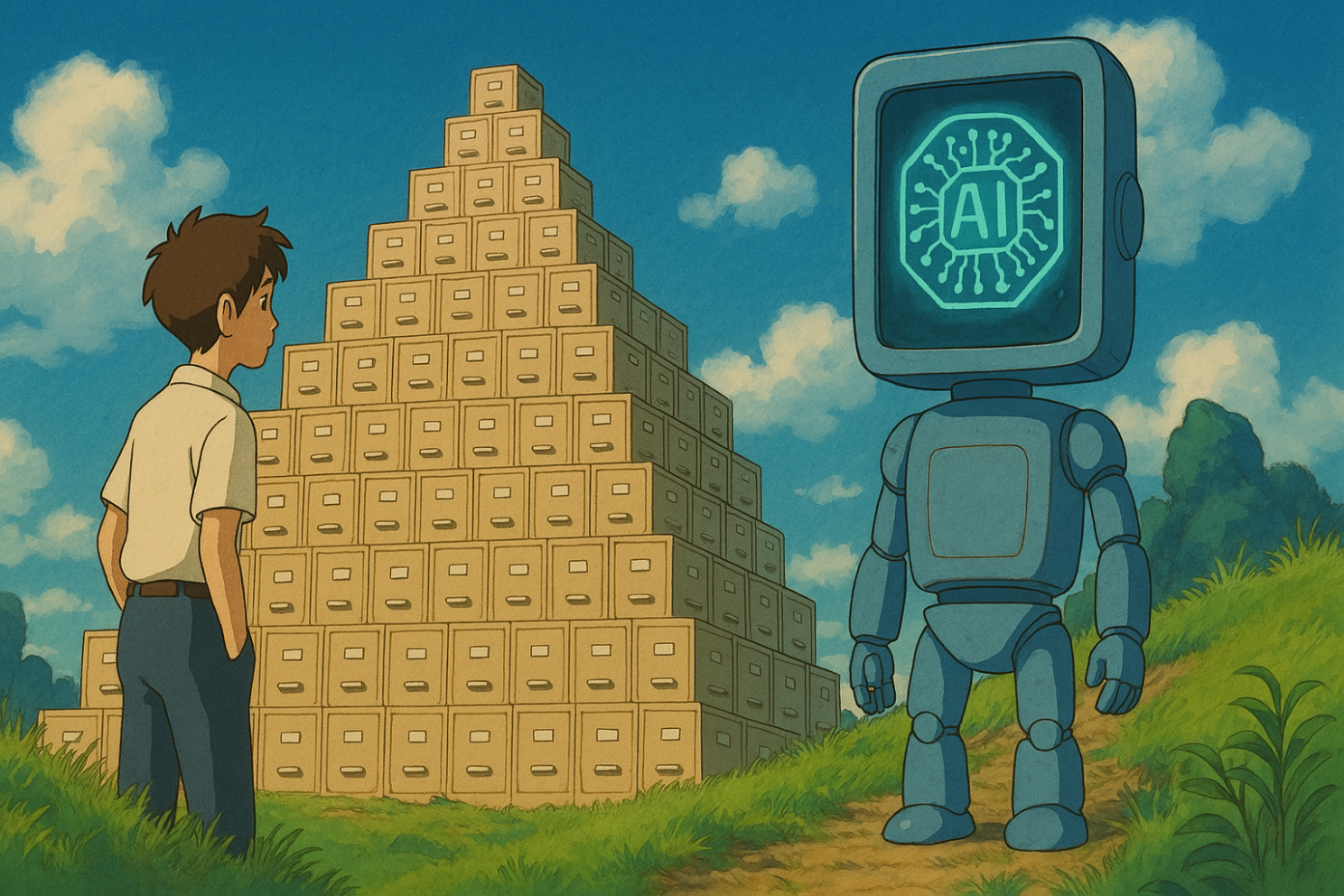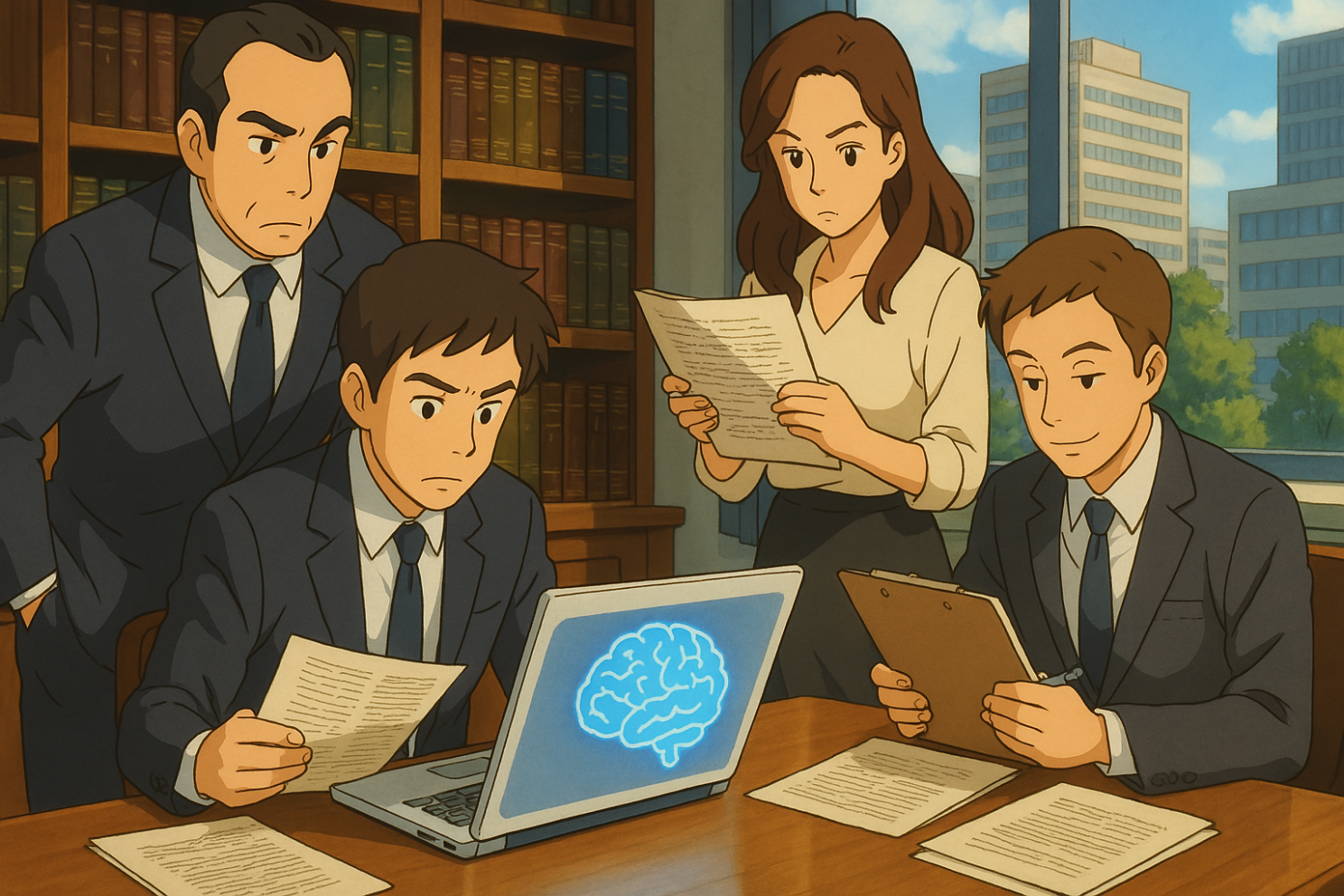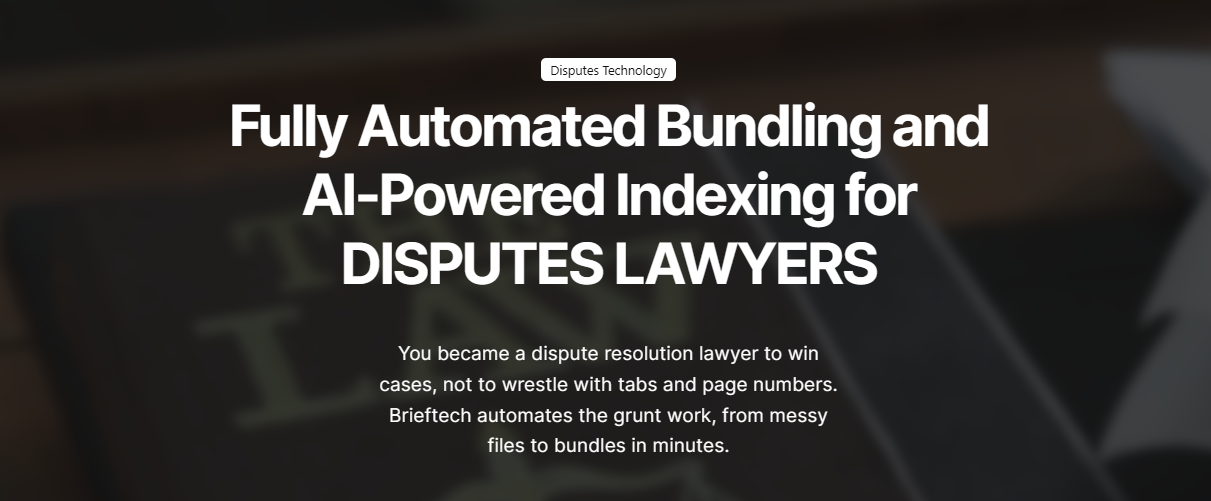The legal industry is shifting, and disputes practices are at the heart of that change.
The latest generation of large-language-model AI isn’t just another tool.
It’s fundamentally altering how law firms deliver services, price work, and define value.
For partners leading dispute resolution teams, this is more than a question of technology adoption.
It’s a moment to rethink how your team works, how your firm competes, and how you position your expertise in front of clients.
To prove that you can be faster, smarter, while being more cost-effective than ever before.

Why the Traditional Model Will Evolve Sooner Than You Think
The pyramid model - built on junior lawyers handling large volumes of routine work, has long underpinned a law firm's profitability.
But the technological breakthrough in current AI's reliability is rewriting the economics.
Tasks that used to take days and weeks of a junior associate's time e.g. document renaming, indexing, summarization, data extraction and first-pass reviews, can now be done by AI in minutes.
With great accuracy and consistency, and at far lower cost.
Clients are already asking the tough questions:
❓ Why are we still being billed hundreds per hour for this to be done manually?
❓ Why are you taking days and weeks to get back to me on this matter?
Firms that stick to traditional workflows risk losing ground - both to competitors and to client expectations that are quickly evolving.

An Opportunity to Stand Out, Not Just Catch Up
Adopting AI isn’t just about saving time or trimming costs.
It’s about positioning your firm as forward-thinking and client-first.
Imagine this: your team receives a data room of 5,000 client documents.
With AI-powered automation, you generate a complete document index, extract key dates and summaries, and produce an initial case brief - all within 24 hours.
Now imagine walking into a pitch meeting and showing your prospective client that case analysis that you've assembled.
Suddenly, you’re not just promising speed, clarity, and insight.
You’re demonstrating it.
You're showing your client why they should choose you instead of your competitor.

The Rise of the Lean, AI-Powered Disputes Practice
Here’s what’s happening on the ground:
A new wave of tech-savvy, entrepreneurial partners are striking out on their own earlier than before.
They’re building lean, agile disputes teams augmented by AI solutions.
These teams are small - often with just a couple of high-performing and tech-savvy juniors.
But with AI doing the heavy lifting in document-heavy workflows, they’re going toe-to-toe with large firms.
Taking on more cases and higher-value cases at the same time.
And they’re winning.
They’re turning around case assessments in hours, not days.
They’re delivering production-ready documents in record time.
They’re charging predictably, operating leanly, and giving clients exactly what they want.
Fast, accurate, cost-effective legal firepower.
This is no longer theory.
This is the new competition.
Established firms that don’t modernize risk losing top talent and top clients to these nimble, AI-native challengers.

Reshaping the Disputes Workflow
AI doesn’t replace the legal judgment your team brings.
It removes the bottlenecks that hold that judgment back.
🧠 Here's how the workflow might change:
Partners spend less time waiting for manually prepared document indexes and summaries and more time shaping strategy.
Senior associates oversee quality control, review AI outputs, and manage more matters concurrently.
Junior lawyers shift from tedious manual grunt work to applying their judgment on creating the work product with the help of AI.
By cutting through the repetition, AI frees your team to focus on what truly moves the case forward.
A Practical Example: Before vs After
Let’s say you’re preparing for trial in a complex commercial dispute.
Here’s how your team's workflow might look.
🔙 The Traditional Manual Approach:
Junior team spends days renaming and organizing files manually
Key dates, parties, and terms are extracted line by line
Partners wait days before they receive usable summaries
Review delays and backlogs create bottlenecks ahead of deadlines
🚀 The Modern AI Approach:
AI renames and categorizes thousands of files in minutes
Parties, timelines, and key events are automatically identified
Real-time case insights are available to partners immediately
Review workflows are streamlined, improving speed and compliance
With AI and automation, you don’t just work faster - you work smarter.
You reduce human errors, generate clearer outputs, and free up more time for strategic legal work where it counts.

Better Early Case Assessments. Stronger Pitches. Lower Costs.
One of the most powerful benefits of AI adoption is the ability to deliver sharper early case assessments - quickly and affordably.
In high-stakes matters, early insight is everything.
The ability to identify strengths, weaknesses, and likely paths at the outset can make the difference between winning and losing a pitch.
And when your team can do this work at a fraction of the traditional cost, it’s a win for both you and your client.
Clients no longer need to wait weeks or pay thousands, just to understand the basics of their case.
You can give them a high-level view within a day.
That’s a competitive edge few firms can offer right now.
Next Steps: Know Where You Stand Before You Start
Before you dive into tools and platforms, step back.
Map your current disputes documents workflow.
Look closely at how your team handles document review, first drafts, and initial discovery.
🔍 Discuss and explore with your team these questions:
Where do we spend the most time that adds the least value to the client and to our revenue?
Which tasks are rule-based and repeatable?
Where is human insight still critical?
That clarity helps avoid wasted investment, and ensures AI-automation supports your team rather than disrupts it.
🎬 Here’s a practical way forward:
Review past cases to identify repetitive tasks in your team's dispute workflows
Run a small pilot using AI-automation on a closed or low-risk matter
Evolve roles thoughtfully - train juniors to operate and review AI work products confidently
Reframe client conversations to show how your tech adoption enhances value
Evolve your pricing to reflect the outcomes you deliver, not just time spent

A Defining Moment for Dispute Partners and Their Practices: Are You Ready?
The dispute resolution game still runs on expertise, speed, and trust.
AI-automation does not replace those fundamentals - it sharpens them.
Firms embracing AI are pitching stronger, delivering faster, and deepening client relationships.
They’re keeping top talent focused and fulfilled on higher-value legal work, while growing margins along the way.
The real threat isn’t AI.
It’s the lean, tech-enabled disputes boutiques using it to win work that once went to you.
The competition is here but so is the opportunity.
The firms that act now will set the new standard for the disputes industry going forward.
Will yours be one of them?
P.S. This article was first published on Linkedin.

Keen to learn how BriefTech’s AI-powered automation helps dispute lawyers speed up disclosure and discovery while lowering processing costs and avoiding burnout from manual grunt work? Learn more here.

Philip Teo is a Singapore-based serial entrepreneur with deep expertise in tech startups, product development, and thought leadership.
His diverse background spans roles as a trading coach, book author, public speaker, adult education solutionist, commando soldier, expedition leader, competitive athlete, and award-winning musician.
As an early adopter of next-generation AI, Philip is on a mission to help legal professionals harness technology, optimize workflows, enhance business outcomes, and future-proof their practice.


